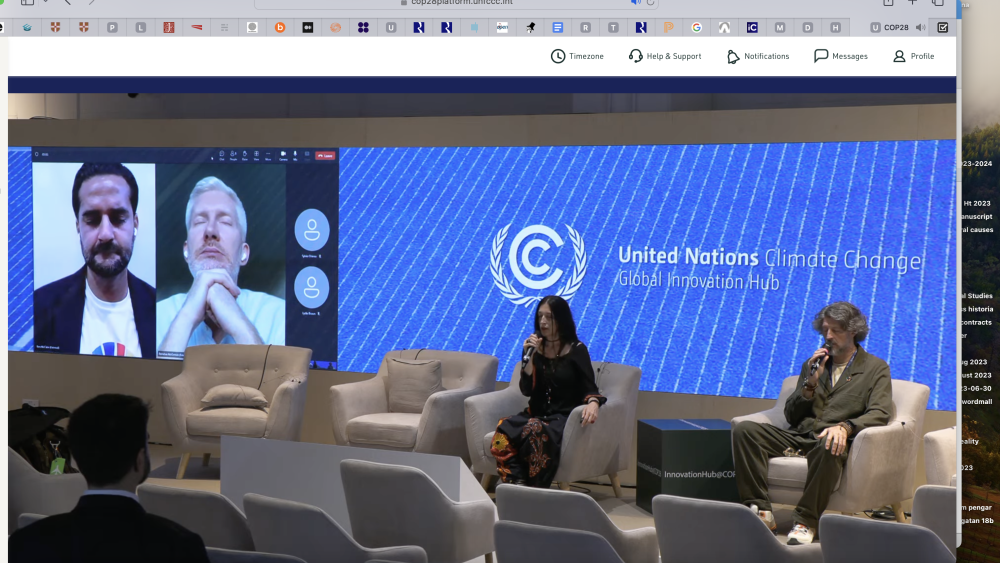Written by:
Alexander Paulsson, Senior lecturer, Lund University School of Economics and Management, LUSEM
Just over a month before the UN Climate Change Conference COP28 in Dubai commenced, I received the exciting news. In my inbox, there was an email from UNFCCC informing me that I had been accredited for virtual participation at COP28. Almost immediately, I attempted to rearrange my calendar to make room for this. Meetings with few participants are relatively easy to adjust, but teaching is a bit trickier, as are meetings with many participants that have been planned well in advance. Unfortunately, keeping the calendar completely empty of activities was not an option in my case. Despite this, I managed to create room in the calendar to participate in most of the sessions and meetings that I later signed up for. Another thing I began to ponder was the time difference. In my previous professional life, I worked for a company whose clients were mainly located in Saudi Arabia. Dealing with the time difference was challenging, especially when real-time communication was needed. So, how would the three-hour time difference play out during COP28?
As soon as I could log in to the website and the virtual platform where COP28 would be broadcasted, I searched through the program for sessions and meetings related to economic issues and financing. There were quite a few, which did not surprise me, given that many discussions in previous meetings had largely revolved around Article 6 of the Paris Agreement and the disputed market mechanism.
How was it then to follow COP from the desk?
The short answer is: at times very exciting and engaging, and at times quite challenging. Following the discussions and meetings in real-time went well despite the time difference. Thanks to some planning and rearranging, it worked out well. It was occasionally difficult to maintain concentration, however, especially, when the conversations during meetings revolved around how individual sentences should be formulated. At those times, I zoomed out after a while. It was easier, though, when disagreements arose and the conflicts became clearer. Then I was drawn into the conversations in a completely different way.
The oddest – and most surprising – moment was when I tried to log in and follow a discussion on how the climate transition should be financed, but instead, I found myself right in the middle of a presentation by an NGO about climate collapse and inner transformations. The long-haired chairman talked about a NASA-funded report that mapped out how civilizations had collapsed, only to quickly transition into a collective meditation. “We need to start with an inner transformation,” he said. The meditation included people both present in Dubai and online.
The “historic” agreement marking “the beginning of the end” of the fossil fuel era, I heard on the radio just before eight o’clock on December 13th, on my way to work. All in all, I learned about the negotiations lot by following COP 28 from the desk, and I would definitely like to do it again if the opportunity arises.

Lund University School of Economics and Management
Photo: Johan Persson

